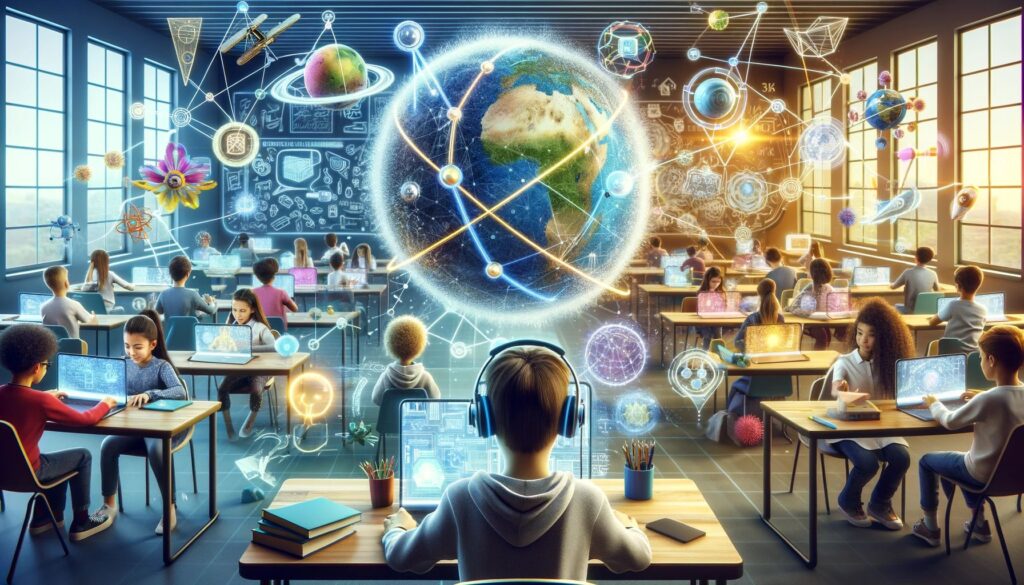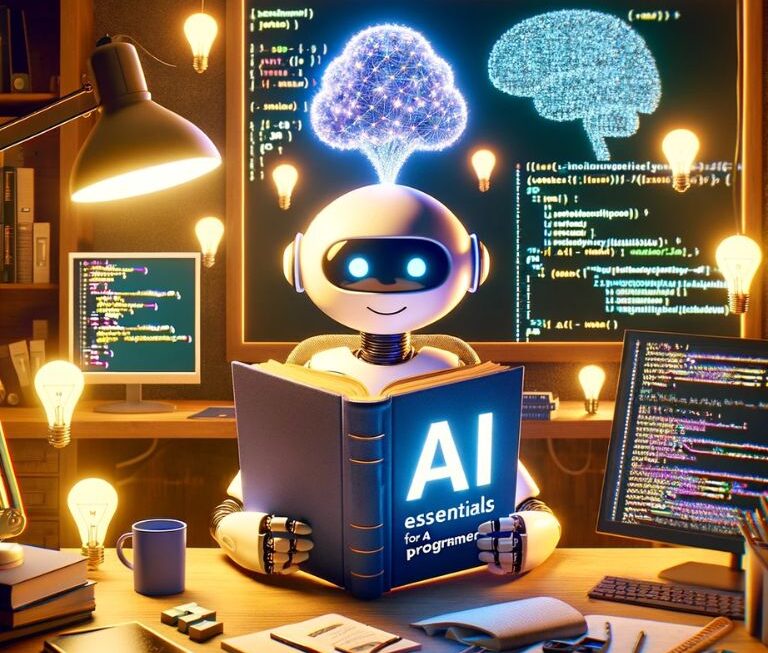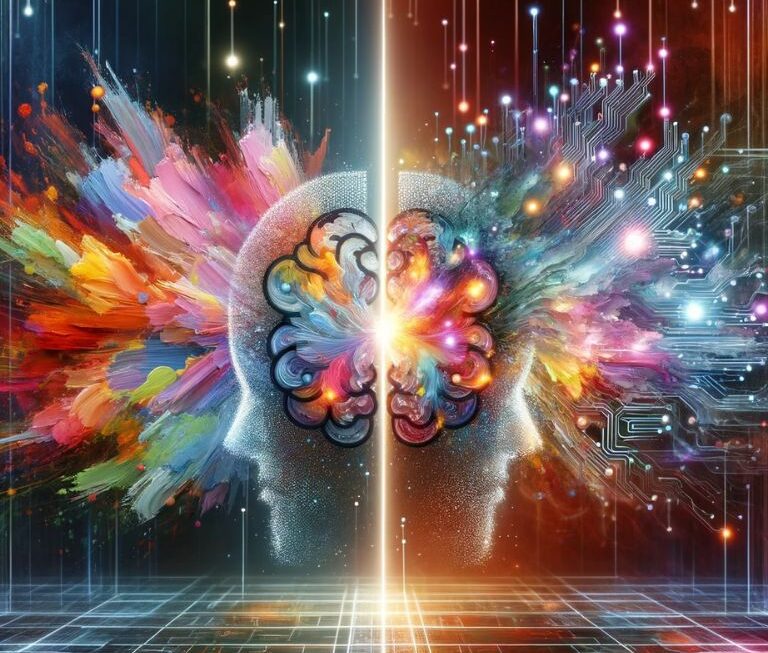At its core, generative AI uses algorithms to generate new data that is similar but not identical to the training data. This is achieved through sophisticated models like Generative Adversarial Networks (GANs), which consist of two parts: the generator, creating data, and the discriminator, evaluating its authenticity. Together, they refine the output, leading to increasingly realistic and accurate creations.
The Significance in Modern Technological Landscape
Generative AI is not just an academic curiosity; it has profound practical applications. From generating realistic images and videos to creating novel drug formulations, its impact is wide-reaching. The technology is redefining what machines can do, pushing the boundaries of machine creativity and problem-solving.
The Evolution of Generative AI
The journey of generative AI has been nothing short of remarkable. Early models were limited to simple tasks, but recent advancements, particularly in deep learning and neural networks, have exponentially increased their capabilities. Today’s generative AI models can produce work that is often indistinguishable from that created by humans.
| Year | Milestone | Description |
| 2014 | Advent of GANs | Introduction of Generative Adversarial Networks by Ian Goodfellow, revolutionizing generative AI. |
| 2018 | GPT-2 Release | OpenAI releases GPT-2, showcasing the ability of AI in generating coherent and contextually relevant text. |
| 2020 | GPT-3 Launch | An advanced iteration with 175 billion parameters, making it one of the most powerful language models. |
| 2023 | AI-Generated Art | Breakthroughs in AI art generation, with AI-created artworks winning contests and gaining recognition. |
The Impact Across Fields
The versatility of generative AI is evident in its varied applications across multiple domains. In healthcare, it’s being used for drug discovery and personalized medicine. In the creative industries, it’s enabling new forms of art and music. In business, it’s transforming marketing strategies through personalized customer experiences and in education, it’s tailoring learning content to individual needs.
Generative AI in Healthcare: Revolutionizing Patient Care
The healthcare sector is witnessing a revolutionary change with the integration of Generative AI, which is paving the way for more precise, efficient, and personalized medical care.
AI-driven Diagnostics
- Early Disease Detection: Generative AI detects diseases early, especially in oncology, cardiology, and neurology, through medical image analysis.
- Predictive Analytics: Using historical data, generative AI predicts health risks and disease progression for proactive healthcare management.
- Customized Diagnostics: AI develops personalized diagnostic tools based on genetic profiles, improving accuracy.
Personalized Treatment Plans
Generative AI is revolutionizing personalized healthcare treatment plans by departing from the one-size-fits-all approach. By analyzing a patient’s genetics, lifestyle, and environment, AI creates highly individualized plans for maximum effectiveness and minimal side effects. AI continuously adapts to new data, keeping plans up-to-date with evolving patient needs and medical research. This personalization not only enhances patient outcomes but also boosts healthcare system efficiency.
The Role of Generative AI in Creative Industries
Generative AI is rapidly becoming a significant player in the realms of music, art, and literature, pushing the boundaries of creativity and redefining the artistic process.
AI in Music, Art, and Literature
- Music Creation: AI composes music, crafting melodies and full pieces across genres.
- Visual Art: AI generates intricate, indistinguishable artworks, including digital paintings.
- Literary Assistance: AI aids in writing poems, stories, and novels, mimicking diverse writing styles.
Ethical Considerations and the Human Touch
Generative AI’s progress in creative fields poses ethical challenges, particularly regarding authorship and originality. Determining ownership of AI-generated content blurs the line between human and machine creativity. The debate continues on AI’s impact on human art’s value. To maintain a balance, emphasizing the human touch, whether through oversight, collaboration, or final editing, preserves human art’s uniqueness. This approach addresses ethical concerns and ensures AI enhances rather than replaces human creativity.
Generative AI Transforming Business Strategies

The integration of Generative AI into business strategies marks a new era of innovation and efficiency, particularly in the areas of marketing and decision-making.
AI in Marketing and Customer Engagement
Generative AI is reshaping marketing and customer engagement through hyper-personalized experiences. Analyzing extensive customer data, AI crafts precise marketing campaigns based on preferences, behaviors, and purchase history, boosting effectiveness and cost-efficiency. AI-powered chatbots and virtual assistants enhance 24/7 customer service with personalized support. This level of personalization fosters customer loyalty, strengthens relationships, and drives sales growth, revolutionizing business-customer interactions.
Predictive Analytics for Decision-Making
Generative AI’s predictive analytics transforms business decision-making. By analyzing historical data, it forecasts market trends, customer behavior, and risks with precision. This informs proactive, profit-maximizing decisions. AI’s learning and adaptability improve predictions over time, keeping businesses ahead in dynamic markets. From supply chains to finances, predictive analytics through Generative AI enhances data-driven decision-making across functions.
Generative AI in Education: Personalizing Learning Experiences

Generative AI is significantly impacting the field of education by offering personalized learning experiences that adapt to individual student needs, learning styles, and pace.
Adaptive Learning Systems
The integration of Generative AI in adaptive learning systems has transformed education delivery. These systems analyze students’ performance and learning habits, customizing content to individual needs. Continuous adaptation creates engaging learning experiences, preventing students from feeling overwhelmed or bored. The outcome is an optimized learning path, enhancing comprehension, retention, and academic achievement for every student.
AI Tutors and Content Generation
- Personalized Tutoring: AI tutors offer real-time, one-on-one assistance, adapting to each student’s pace for personalized guidance.
- Automated Content Creation: Generative AI creates diverse educational materials, including practice questions and interactive modules.
- Language Learning Tools: AI aids language learning with pronunciation correction, grammar exercises, and immersive conversational practice.
Ethical Implications and Challenges of Generative AI
As Generative AI continues to advance, it brings with it a host of ethical implications and challenges that need careful consideration and management, particularly in the areas of privacy and bias.
Privacy Concerns
Generative AI often handles large volumes of sensitive data, prompting privacy concerns, especially when personal data is used for training. There’s a risk of data reconstruction or misuse, potentially causing privacy breaches. Protecting individual privacy is paramount in AI development, requiring strong data governance, anonymization when needed, and informed consent from data subjects. Compliance with data protection laws is vital for maintaining public trust in AI technologies.
Bias and Fairness in AI Systems
- Data Bias: AI can amplify existing biases, posing fairness concerns in areas like recruitment, lending, and law enforcement.
- Algorithmic Transparency: Transparent AI algorithms are essential for accountability and addressing bias.
- Diversity in AI Development: Promoting diversity in AI teams fosters inclusive systems that consider various perspectives.
- Regular Audits and Updates: Routine AI system audits and updates prevent unfair outcomes and maintain fairness over time.
What Awaits in the Future of Generative AI
Generative AI is on a trajectory of rapid evolution, with future advancements poised to further reshape technology and society. Understanding upcoming trends and potential impacts is key to navigating this future.
Upcoming Trends in AI Technology
- Enhanced Realism: Future generative AI aims for lifelike images, videos, and compelling narratives.
- Interdisciplinary Integration: Generative AI will integrate into various fields, sparking innovation.
- AI Ethics & Governance: Advancements will drive ethical guidelines and governance.
- Improved Accessibility: AI tools will become more accessible.
- Collaborative AI-Human Interfaces: Advanced interfaces for improved collaboration.
Potential Societal Impact
- Economic Impact: Generative AI may reshape the job market, creating new roles and altering existing ones.
- Educational Transformation: AI can personalize learning, reducing educational disparities and changing traditional models.
- Cultural Influence: AI-generated content may shape cultural trends in art, music, and literature, fostering new expressions.
- Ethical and Legal Concerns: Debates on AI ethics, intellectual property, and privacy will gain prominence.
- Healthcare Advances: AI could revolutionize healthcare through precision medicine, early disease detection, and efficient delivery systems.
Conclusion: Embracing the Generative AI Era
As we reflect on Generative AI’s profound impact across multiple sectors, its role as a transformative force is unmistakable. This technology is revolutionizing areas from healthcare to creative industries and reshaping business and education. It’s crucial to balance its potential with a mindful approach to ethical and societal challenges. The journey ahead for Generative AI is filled with continuous evolution and deeper integration into our lives. As it shapes future trends, the focus should be on harnessing its power responsibly, ensuring equitable benefits and fostering a sustainable future. The true potential of Generative AI is still unfolding, promising endless possibilities for growth and innovation.




